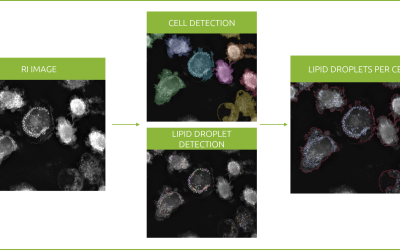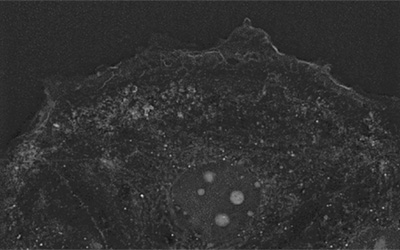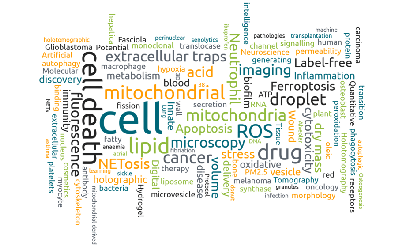Nanolive is happy to announce a new publication on the Official journal of the Cell Death Differentiation Association by our customers at the Taipei Medical University in Taiwan[1].
Non-small-cell lung cancers (NSCLCs) are the most common type of lung cancer. Traditional therapies work by inducing apoptosis in cancer cells. However, modifications in cancer cells, such as mutations in intrinsic apoptotic signaling pathways, lead to chemotherapy resistance.
An alternative way to induce cell death and retard tumor growth in apoptosis-resistant cancers is to target the autophagic pathways. Given the problem that natural compounds known for inducing autophagy have a low oral bioavailability, a solution would be to repurpose autophagic in-use drugs so that they work as therapy for a wider variety of clinical conditions. Penfluridol, a drug used in schizophrenia treatment, has proved to be a repurposed drug for breast, pancreas and brain tumors. Nevertheless, its effects in NSCLCs had not yet been studied.
Hung and colleagues studied the effects of penfluridol in human NSCLC A549 and HCC827 cells lines. Samples of both cell lines after penfluridol treatment were analyzed by immunohistochemistry, flow cytometry and immunofluorescence assays. The 3D Cell Explorer was used to observe the changes of apoptotic features in A549 and HCC827 cell lines treated with penfluridol (Figure 1).
The results showed that, at a non-toxic concentration, penfluridol suppressed motility of NSCLC cells. Cell death due to phagosome formation was observed both in vivo and in vitro in cells treated with penfluridol. Autophagosomes were mainly the result of adenosine triphosphate (ATP) energy deprivation, and the ER stress-induced p38-mediated unfolded protein response pathway seemed to be the mechanism involved in the process. The authors concluded that penfluridol-induced autophagy may be a promising NSCLC treatment.
Read the full publication here

Figure 1. Evaluation of the formation of apoptotic bodies (red arrows) in A549 and HCC827 cells treated with penfluridol (7.5 μM) for 24h under the 3D Cell Explorer (image from W.-Y. Hung et al., “Autophagosome accumulation-mediated ATP energy deprivation induced by penfluridol triggers nonapoptotic cell death of lung cancer via activating unfolded protein response,” Cell Death Dis., vol. 10, no. 8, p. 538, Aug. 2019)
[1] W.-Y. Hung et al., “Autophagosome accumulation-mediated ATP energy deprivation induced by penfluridol triggers nonapoptotic cell death of lung cancer via activating unfolded protein response,” Cell Death Dis., vol. 10, no. 8, p. 538, Aug. 2019.
Read our latest news
Revolutionizing lipid droplet analysis: insights from Nanolive’s Smart Lipid Droplet Assay Application Note
Introducing the Smart Lipid Droplet Assay: A breakthrough in label-free lipid droplet analysis Discover the power of Nanolive's Smart Lipid Droplet Assay (SLDA), the first smart digital assay to provide a push-button solution for analyzing lipid droplet dynamics,...
Food additives and gut health: new research from the University of Sydney
The team of Professor Wojciech Chrzanowski in the Sydney Pharmacy School at the University of Sydney have published their findings on the toxic effect of titanium nanoparticles found in food. The paper “Impact of nano-titanium dioxide extracted from food products on...
2023 scientific publications roundup
2023 has been a record year for clients using the Nanolive system in their scientific publications. The number of peer-reviewed publications has continued to increase, and there has been a real growth in groups publishing pre-prints to give a preview of their work....
Nanolive microscopes
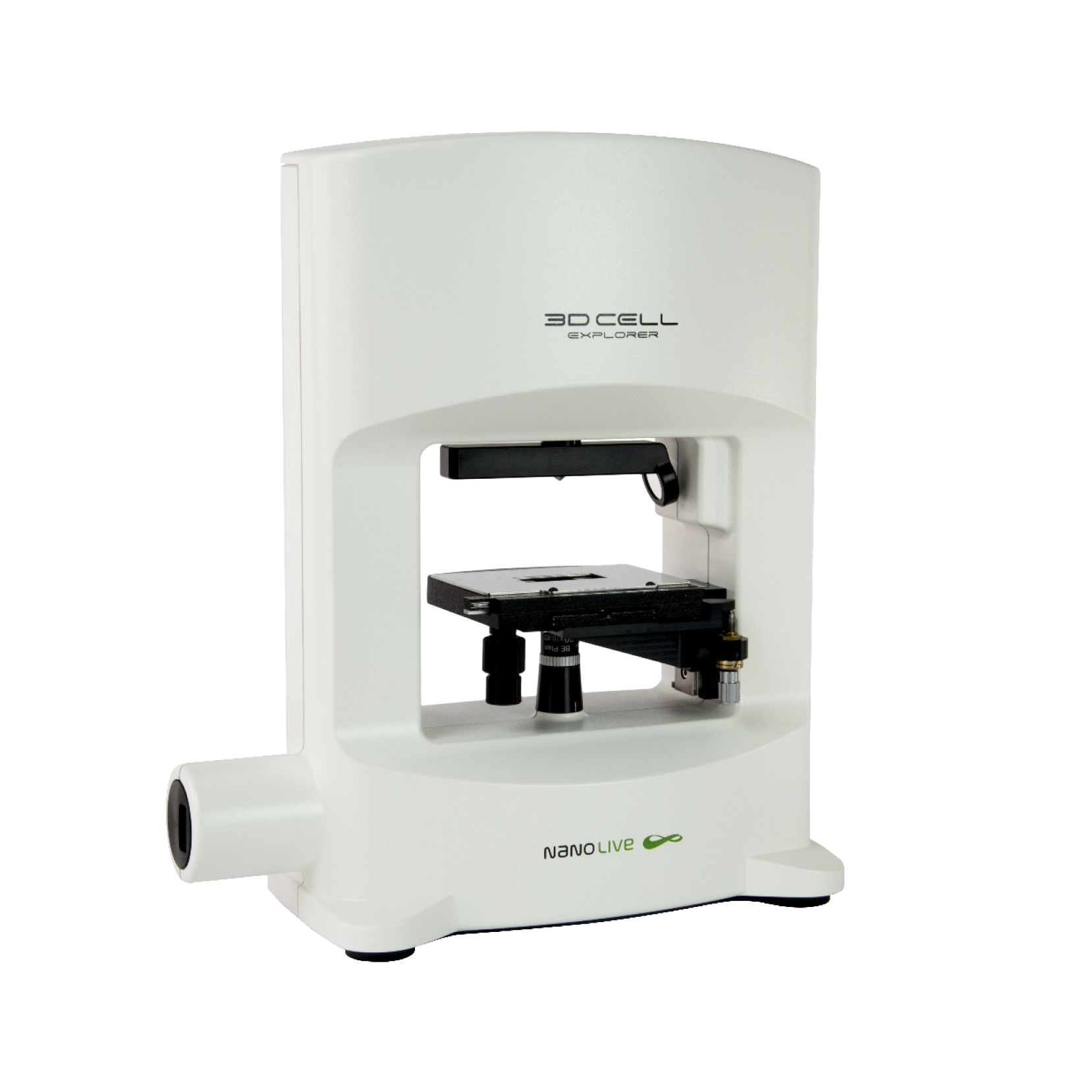
3D CELL EXPLORER
Budget-friendly, easy-to-use, compact solution for high quality non-invasive 4D live cell imaging
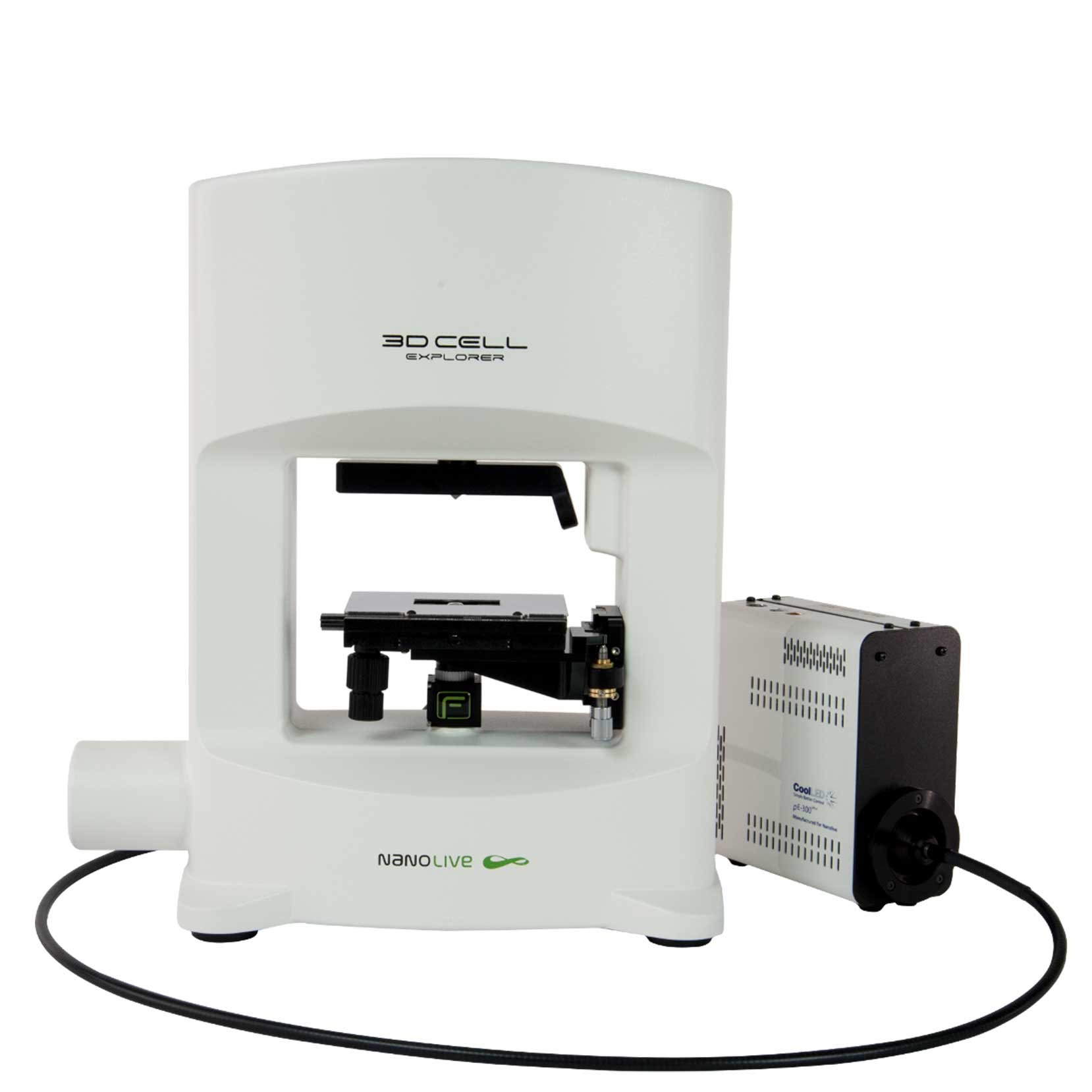
3D CELL EXPLORER-fluo
Multimodal Complete Solution: combine high quality non-invasive 4D live cell imaging with fluorescence
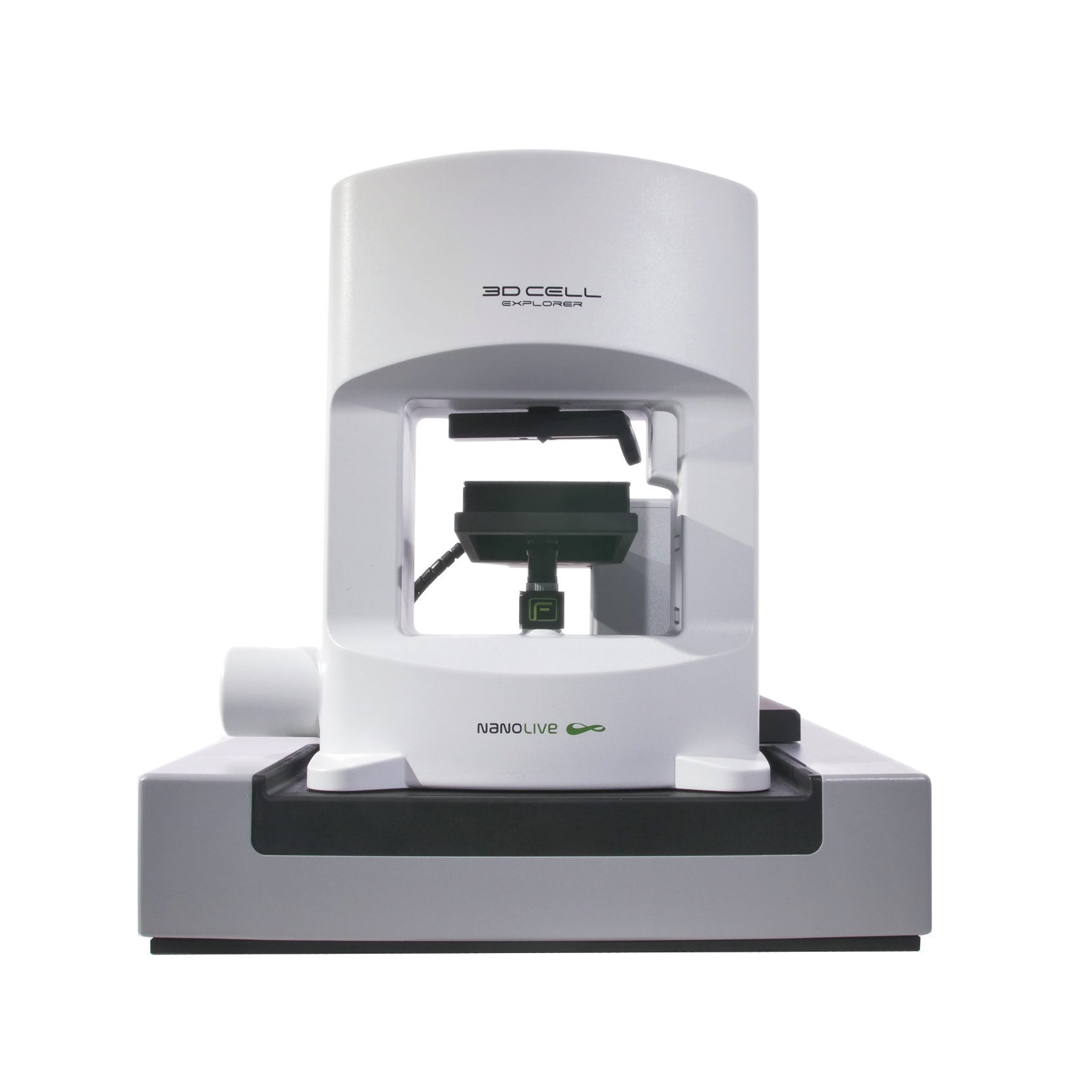
CX-A
Automated live cell imaging: a unique walk-away solution for long-term live cell imaging of single cells and cell populations

